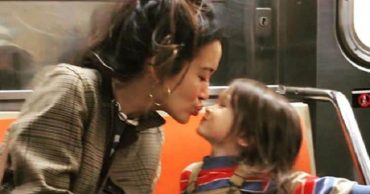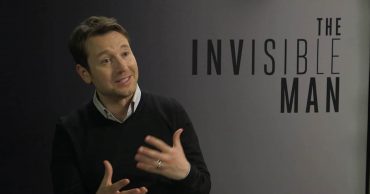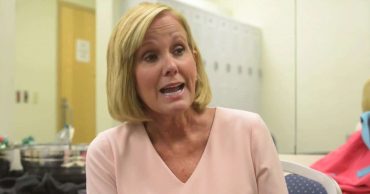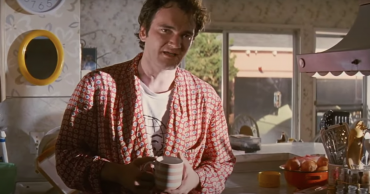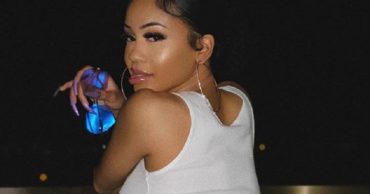Dave Chappelle is back and in a big way. Everyone’s eagerly anticipating his two upcoming Netflix specials (as am I) to see if he’s still got the old stuff. He’s already hosted SNL this year and I’m not concerned in the slightest. Chappelle’s got the same stuff if not even better now that there’s a much more difficult political climate to live in. While the hype for his specials continues to rise, Chappelle’s been a bit more “public” recently and not afraid to share details about his past and why he left The Chappelle’s Show.
Before Chapppelle’s Show Dave was a pretty famous comedian in his own right. He had done plenty of movies and plenty of stand up but it was his revolutionary skit comedy show Chappelle’s Show that made him a superstar. Just as he was going to sign a $55 million deal after the show’s soaring success, Chappelle kind of had a meltdown. He retreated from the public eye, left the country and wasn’t heard from for a very long time.
Years after that entire scenario unfolded Chappelle did a rare, far-reaching interview with CBS This Morning‘s Gayle King, who visited him in the tiny Ohio town where he lives. There, the two spoke about his still-controversial choice to leave Chappelle’s Show in 2005, walking away from a $55 million deal with Comedy Central, as well as what he’s been up to since then and his thoughts on a number of topics. Below are highlights from the interview:
Here all all of his answers that were printed on TV Guide
On what he was feeling when he walked away:
“I was talking to a guy, and he basically said to me that comedy is a reconciliation of paradox. I think that that was an irreconcilable moment for me. That I was in this very successful place, but the emotional content of it didn’t feel like anything I imagined success should feel like. I just didn’t feel right.”
On whether he misses Chappelle’s Show:
“Yeah, but Chappelle’s Show is like breaking up with a girl and you still like her, but in your mind you’re like ‘that bitch is crazy. I’m not going back.'”
On how success became a trap:
“It was bigger than money. I watched one of these nature shows one time, and they were talking about how a bushman finds water when it’s scarce. And they do what’s called a salt trap. I didn’t know this, apparently baboons love salt. So they put a lump of salt in a hole and they wait for the baboon. The baboon comes, sticks his hand in the hole, grabs the salt, the salt makes his hand bigger, he’s trapped — he can’t get his hand out. If he’s smart, all he does is let go of the salt. Baboon doesn’t want to let go of the salt. Then the bushman just comes, takes the baboon, throws him in a cage and gives him all the salt he wants. And then the baboon gets thirsty, the bushman lets him out the cage, the first place the baboon runs is to his water, the bushman follows him, and they both drink to their fill. And in that analogy I felt like the baboon.”
On whether he would have done things differently:
“It’s very hard to say what you would have done. You only really know what you did. At the end of the day, ultimately I feel good about what I did. It was not easy, and I do not recommend it. But it worked for me. I took the Dave Chappelle detour. It was a scenic route. I’m glad I took the route, but it was a long, long, long detour.”
On how his life changed in the years after:
“I found an altitude I was comfortable with. I found a way to do what I like to do and avoid some of the parts of it that I was uncomfortable with. If you look at me physically, I’m like 40 pounds heavier than I was when I did Chappelle’s Show. People are like ‘How did you gain all that weight?’ By resting, and eating and paying attention to myself. I have actual relationships with my kids. I’ve been all over the country touring all my life, but I never saw anything. Now I’ve seen everything. I could talk to people. I had time to stop if someone said they like me. It wasn’t like I brushed past them like ‘I don’t want to hear it,’ I had time to stop like ‘You do?’ It was just like the way that I engaged with the world was different.”
On fear and courage:
“It’s OK to be afraid, because you can’t be brave or courageous without fear. The idea of being courageous is that even though you’re scared you just do the right thing anyway. So in 2004, I walked away from $50 million, and in November, I made a deal for $60 million.”
On his Comedy Central successors Key & Peele:
“I’m a fan of their show. When I did Chappelle’s Show, there were certain conventions of the show that the network resisted. And I fought the network very hard so that those conventions could come to fruition. … When I watch Key & Peele, and I see that they’re doing the format that I created, and at the end of the show it says ‘created by Key & Peele,’ that hurts my feelings.”
On if there’s a line he won’t cross with his jokes:
“Comedy’s weird. The line moves. It changes. But I think especially in comedy, a lot of it has to do with intent. [My intent is] to make people laugh. To reconcile paradox. Sometimes just openly vent. I think that when you get to a certain altitude there’s more scrutiny over the things you say, because the platform is so powerful.”
On raccoons:
“They’re a little too bold. They got those hands.”
 Follow Us
Follow Us
